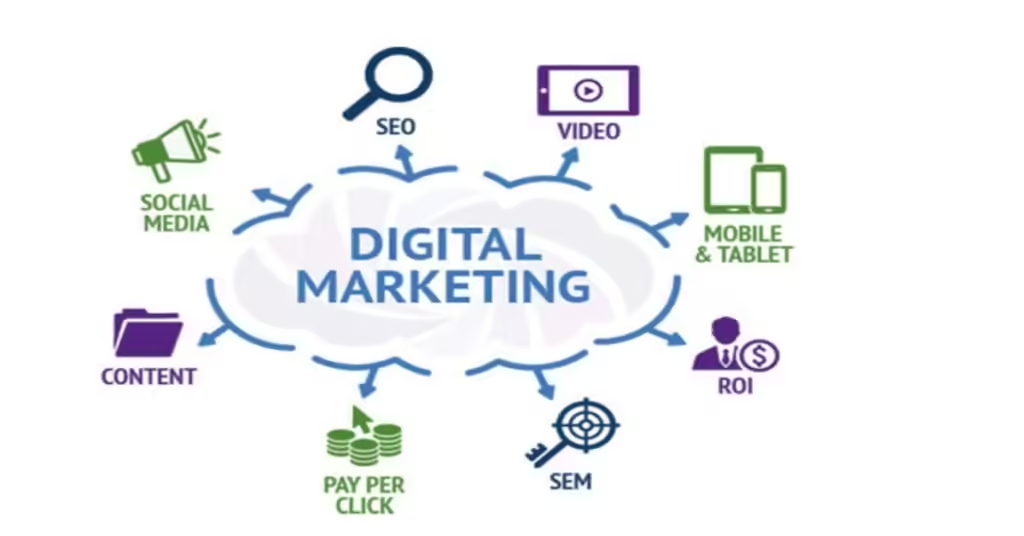
In the digital age, a robust online presence is a game-changer for small businesses looking to compete in the market. Digital marketing offers a cost-effective and efficient way to reach a broader audience, connect with potential customers, and grow your brand. Let’s explore some essential digital marketing solutions tailored for small businesses.
Digital Marketing for Small Businesses
1. Website Optimization:
A well-designed, user-friendly website is the cornerstone of your online presence. Ensure your website is mobile-responsive, loads quickly, and also is easy to navigate. Optimize your content for search engines (SEO) to improve visibility and also attract organic traffic. Your website should provide essential information about your products or services and feature clear calls to action.
2. Social Media Marketing:
Leverage the power of social media platforms like Facebook, Instagram, Twitter, and LinkedIn to connect with your audience. Develop a content calendar and also post engaging, relevant content regularly. Use paid advertising on these platforms to target specific demographics and also increase brand awareness.
3. Email Marketing:
Email marketing remains an effective tool for small businesses. Build a subscriber list and send out newsletters, promotional offers, and updates. Personalize your emails to engage your audience, and also track performance metrics to refine your strategies.
4. Content Marketing:
Create high-quality, valuable content that educates, entertains, or informs your target audience. Content can take various forms, including blog posts, videos, infographics, and podcasts. Sharing useful content establishes your authority in your industry and can also improve your search engine rankings.
5. Pay-Per-Click (PPC) Advertising:
PPC advertising, such as Google Ads, allows you to display ads in search results or on websites. You only pay when a user clicks on your ad. This can be an effective way to quickly increase your website’s visibility and also drive traffic to your site.
6. Local SEO:
For brick-and-mortar businesses, local SEO is crucial. Ensure that your business is listed on platforms like Google My Business. Encourage customers to leave reviews, as positive feedback can improve your local search rankings.
7. Online Reviews and Reputation Management:
Manage your online reputation by actively monitoring and responding to reviews on platforms like Google, Yelp, and also social media. Positive reviews build trust and credibility, while addressing negative feedback demonstrates your commitment to customer satisfaction.
8. Influencer Marketing:
Collaborating with influencers in your industry can help you reach a wider and more targeted audience. Influencers can promote your products or services to their followers, increasing brand awareness as well as credibility.
9. Analytics and Data Tracking:
Use digital marketing analytics tools to measure the performance of your marketing efforts. Track key metrics such as website traffic, conversion rates, email open rates, and also social media engagement. Analyzing these data points will also you refine your strategies for better results.
10. Customer Relationship Management (CRM):
Implement a CRM system to manage customer data and improve your interactions with clients. This can help you personalize your marketing efforts and also nurture customer relationships over time.
In Conclusion
Digital marketing solutions are vital for the growth and success of small businesses. They also enable you to compete in the digital marketplace, reach your target audience, and also build brand recognition. By implementing these strategies and staying informed about the latest digital marketing trends, small businesses can thrive in the digital age.
Also read: https://bizemag.com/know-your-rights-legal-guide-for-women/

Been playing on 165bet for a couple of weeks now. Pretty standard experience. A lot of offers for loyal customers. Give it a try: 165bet